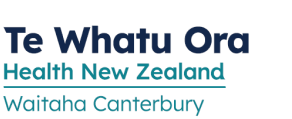What does it do?
Orlistat is used to help you lose weight by reducing the fat you absorb from food. It should be used with a low fat diet.
Before you start
- Tell your health professional if you have gallbladder, or bowel problems, diabetes, or if you have ever had kidney stones.
- Tell your health professional if you are pregnant, planning to become pregnant, or breastfeeding.
How should you take it?
Take orlistat as directed with each main meal. Take with a glass of water.
What if you forget a dose?
Should an occasional dose be missed it need not be taken later.
Can you take other medicines?
Tell your pharmacist or doctor about all medicines or treatments that you may be taking, including vitamins, herbal products or recreational drugs.
What side effects might you notice?
| Side Effects | Recommended action |
|---|---|
|
Abdominal pain Farting Diarrhoea, oily bowel motions |
More common when you first start. Reducing the amount of fat in your meals will help. Tell your health professional if troublesome. |
If you notice any other effects, discuss them with your doctor or pharmacist.
Other information:
- You may need to take a multivitamin while taking orlistat. Talk to your health professional.
This leaflet contains important, but not all, information about this medicine.
Prepared by the MyMedicines Committee at Christchurch Hospital, Te Whatu Ora - Waitaha, New Zealand. March 2023
For more general information about this sheet and its contents, see: What does a My Medicines sheet cover?
Te Reo Māori
Te Reo Māori information sheets supported by Health Quality and Safety Commission New Zealand
Web links for this sheet in different formats
Click on buttons to copy web addresses for this leaflet:
If your browser does not automatically copy these links use its copy command instead.
About My Medicines
My Medicines Patient Information Leaflets (PILs) contain important, but not all, information about the medicines they describe.
For more information about the sheets, see: What does a My Medicines sheet cover?
My Medicines is developed by a team at Te Whatu Ora – Waitaha. Our team is made up of doctors, pharmacists, and a non-medical person to help us keep to plain language. We also discuss our information with specialist health professionals or groups when needed

